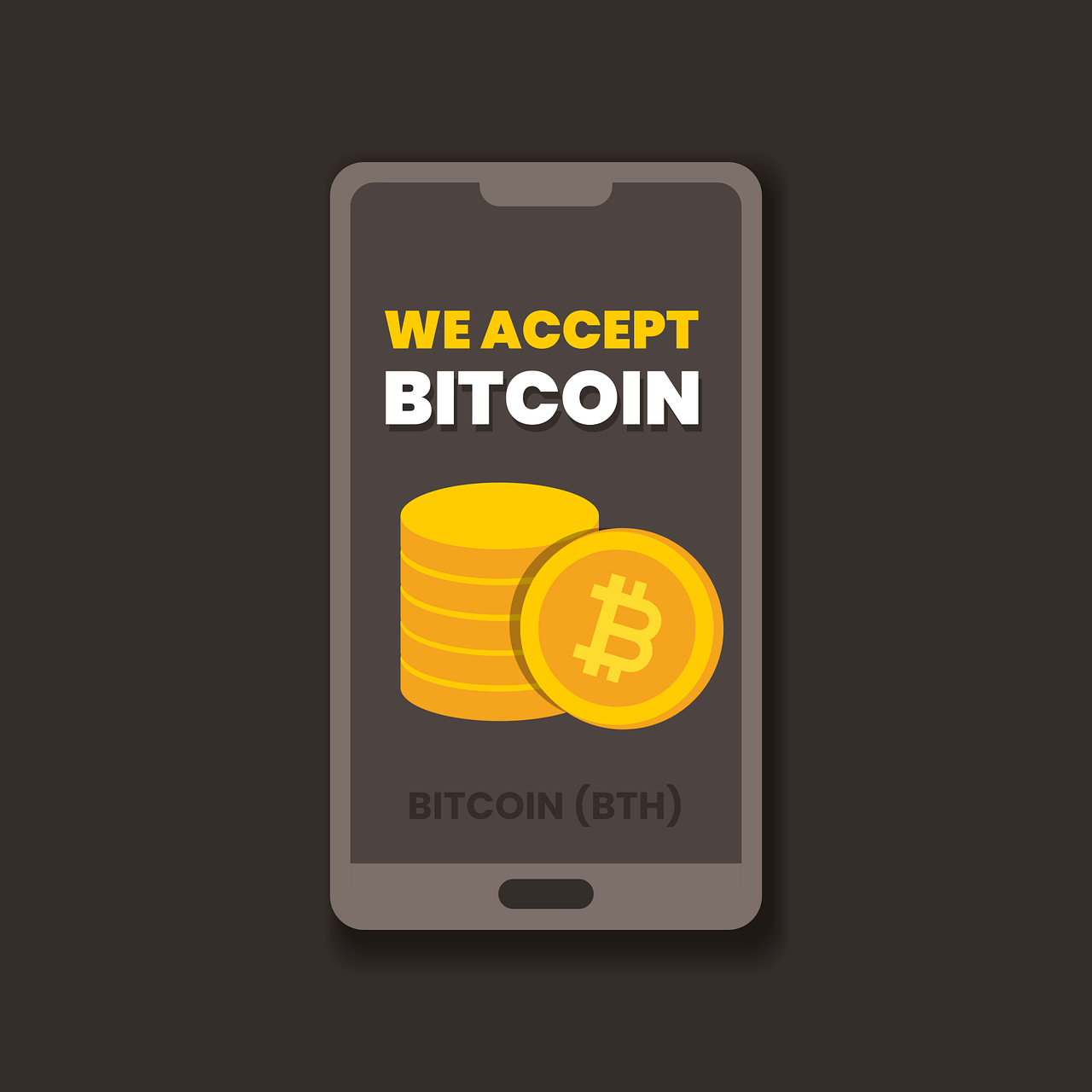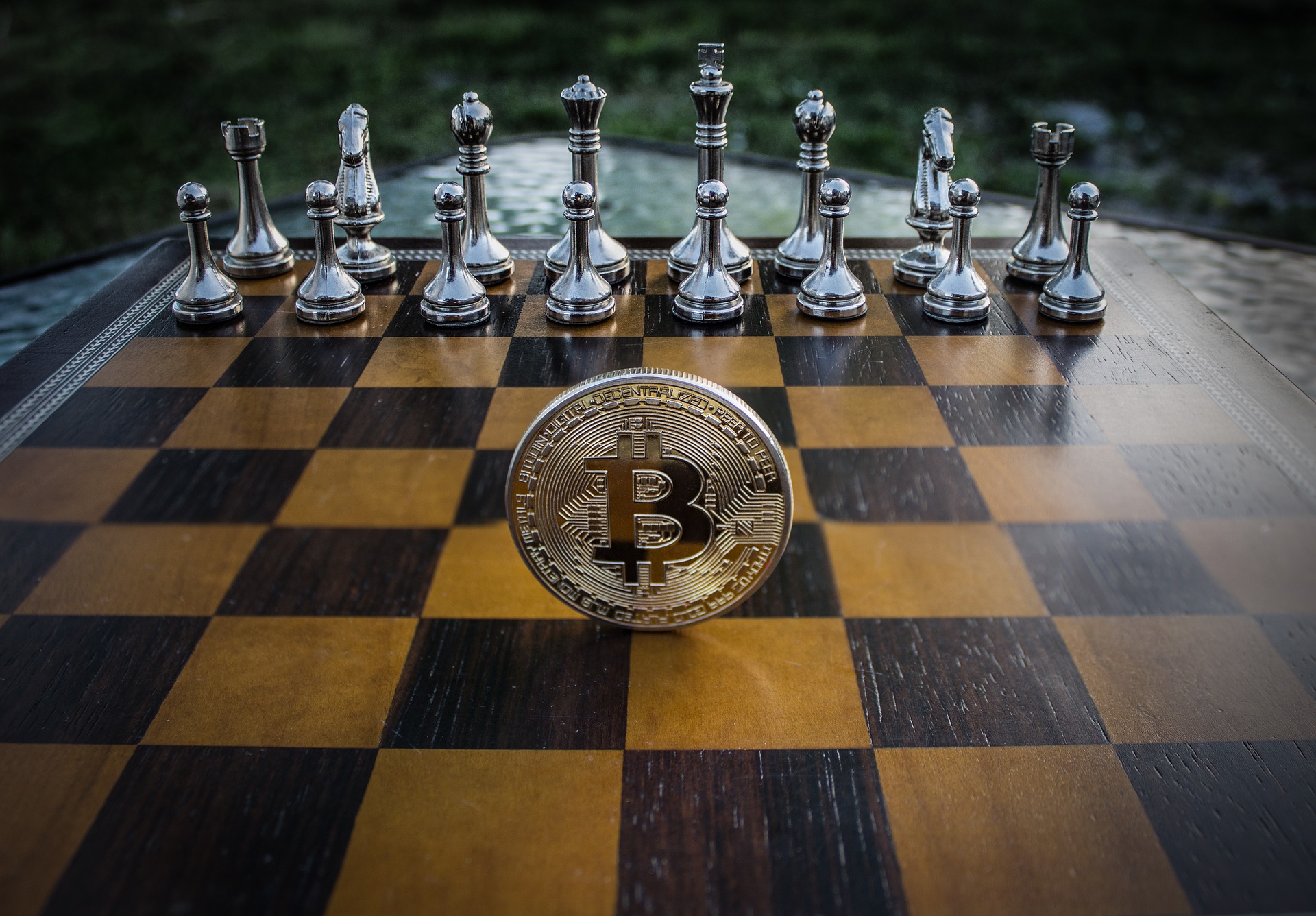
How to Start Investing in Cryptocurrencies
If you're reading this, there's a good chance you've at least heard of Bitcoin. It was the year 2009 when Satoshi Nakamoto published his (never confirmed) paper on how to build virtual money using cryptography and blockchain technology. Surprisingly, it would take another six years for the cryptocurrency to take its first steps. Still, after all this time, it remains one of the most exciting developments in the world of finance and economics. And yes,
I'm talking about decentralized peer-to-peer currency. If you want to know how to start investing in cryptocurrencies - being up to date with the latest news is essential.
The phrase "cryptocurrency" can be misleading because not all cryptocurrencies use cryptography in the same way. For example, there is a cryptocurrency called "Namecoin" that acts like the .bit domains of the Internet (where you can register your domain). It can also be used for other things besides money. This is just one of five hundred different coins that have been made for the purpose of being used as a medium of exchange.
What exactly are cryptocurrencies?
In simple terms, cryptocurrencies are digital assets designed to function as a medium of exchange using cryptography to secure transactions and control the creation of additional units. The key difference between traditional currencies and cryptocurrencies is that they are decentralized, meaning that no authority or institution owns or controls them. Since decentralized networks lack authorities, they have little chance of failure and cannot be confiscated or frozen.
How does it work?
When someone sends a cryptocurrency, they are including the entire history of the currency in that transaction. If you want to send $100 of Bitcoin, your account must have $100 of Bitcoin associated with it. This is what cryptographers call "proof of immutable ownership" In addition, cryptographic signatures ensure that no one can spend funds from another user's account without their permission. But how do you know who owns which coins? The blockchain.
The blockchain functions as an constantly evolving public ledger, which records transactions in packets called blocks (hence its name). Each block contains all transactions made in a given period of time (depending on the currency). All these blocks are linked and secured by cryptography, which makes them immutable.
What is cryptocurrency mining?
People all over the world install powerful computers to mine cryptocurrencies. When a transaction occurs, it is necessary to confirm it and upload it to the blockchain and this work falls to the miners. They need to spend an unhealthy amount of computing power to match their blockchains to those of the rest of the network. If they get it first, they will receive a prize for their contribution.
The most famous example of cryptocurrency mining is Bitcoin's Proof-of-Work (or "PoW") algorithm. With PoW, miners compete with each other using special hardware specifically designed to solve cryptographic puzzles as quickly as possible. Simply put, the more computing power a miner has, the more chances they have of finding the solution before anyone else.
What it basically means is that Bitcoin mining is so difficult and competitive, that you can only make a profit using powerful hardware that requires large investments in electricity and data processing.
What is all this fuss about Bitcoin?
For many people, Bitcoin was the first exposure to cryptocurrencies and for several years occupied the number one position in CoinMarketCap, but over time other currencies began to appear and capture part of Bitcoin's market share. The reasons for Bitcoin's dominance are its network effect (the fact that millions of users already use Bitcoin) and its brand awareness.
However, we can't say how long this will last with the emergence of thousands of new cryptocurrencies every day that operate on a different technology than Bitcoin, and they could be better in certain areas.
Who creates the cryptocurrency?
Mainly two types of people: developers who write the code behind a specific cryptocurrency and miners who create new tokens or maintain the blockchain for a given currency. Miners receive a reward for each block they successfully mine. Although this reward varies from one type of cryptocurrency to another, it usually consists of newly created coins plus transaction fees. Developers also make money by launching ICOs (Initial Coin Offerings)
– a way to raise funds by creating their own coin/token and selling it to investors. The downside is that if the token has no real value, investors can always get angry when you run away with their money.
How can I track cryptocurrency prices?
There are several ways to track the price of a given cryptocurrency: websites like coinmarketcap.com, cryptowat.ch, and many others offer real-time data on thousands of cryptocurrencies, ICO, and other crypto assets. CoinMarketCap is one of the most useful sites out there: it has a huge database and offers dozens of useful tools and indices that show how well (or not) different coins have behaved over time.
It is also very handy because you can see at a glance what is happening in the market with real-time data on trading volumes, market capitalization, available supply, etc. However, it should be noted that some exchanges only show artificial data for some so use CoinMarketCap with caution.
How do I buy cryptocurrencies?
The first thing you should do is choose a good exchange - this is where you will buy, sell and store your coins. There are hundreds of bags, but not all of them are the same. The type of exchange you need depends on the type of person you are: if you are an active trader for whom speed is important, margin trading could be something to consider; if privacy is more important than convenience, decentralized exchanges (DEXs) might be more suitable...
What is cryptocurrency mining?
Cryptocurrency mining has been used as a profitable activity for many years by different people around the world. While mining used to be something that anyone with a computer could participate in, the increased demand for cryptocurrency mining has pushed up its cost (especially electricity) and forced many people to leave the industry, leaving only the most successful miners.
...
Where can I spend my cryptocurrency?
You can't spend your Bitcoin on every site, but you can use your Bitcoins to buy gift cards on websites like eGifter (US/International) or Gyft (US) – this works almost the same as using a regular credit card at a specific store: you keep getting goods in exchange for your payment. In addition, some retailers directly accept cryptocurrencies. Some examples are Overstock, Microsoft, Expedia, Newegg, and Virgin Galactic. You can also convert one type of cryptocurrency into another using special websites called ShapeShift or Changelly, but you're likely to pay a commission for the transaction.
What are ICO?
ICO stands for Initial Coin Offering – it means selling a new type of digital tokens in exchange for other cryptocurrencies such as Bitcoin or Ethereum. This is usually used by start-ups to raise funds without having to go through intermediaries, and also skipping the expensive legal requirements that exist in many countries. For example, under current legislation,
if a U.S. company wants to sell shares through an IPO (Initial Public Offering) it must publish detailed information about its business, otherwise it is illegal. While this helps protect individual investors from fraud, early-stage companies may want to avoid these costs and benefit fully from this new mechanism.
What are the alternatives to Bitcoin?
One of the most popular cryptocurrencies is Ethereum, which has the second largest market capitalization after Bitcoin – currently around $30 billion. Other popular options are Ripple (XRP), IOTA (IOT), and Dash (DASH). There are hundreds of different cryptocurrencies, but these five have had a consistent return in recent years. You can check out what's trendy right now at CoinMarketCap.
¿Qué es el proof-of-stake?
Proof-of-Stake (PoS) is an alternative way to allocate new coins on a blockchain network. Instead of requiring miners to solve difficult math problems to create new blocks, Po. In a PoS system, the creator of a new block is chosen by various combinations of random selection and wealth or age, while in a PoW system miners are chosen based on their investment in hardware and electricity.
How can I make money with cryptocurrencies?
Cryptocurrencies (or any other asset) can rise or fall in price over time. The main thing is to hold long enough for the price to recover; this way you are more likely to recoup your original investment if you need to sell for some reason. You can also lend your coins by placing them on a cryptocurrency lending platform like Bitfinex.
Finally, most exchanges allow you to convert one type of cryptocurrency into another, so you can take advantage of arbitrage opportunities if you notice that different exchanges have different prices.
I hope this basic introduction to cryptocurrencies has been helpful – keep visiting CoinSutra for more updates! ================================================================================================================================================================================================================================================================================================================================================================================================================================================================================================================================================================================================================================================================================================================================================================================================================================================================================ The images used are for reference only. This blog is not a financial advisor, do your research before making any investment or trade with money that you can't afford to lose! You are solely responsible for the decisions you make – these are trusted broker businesses! I am not responsible for any of your losses Greetings Elisa Joelle Elisa Joelle is one of the many brokers that sell low quality binary options signal services. She has been caught lying about her location and age.
I've been doing a lot of research on cryptocurrencies lately after being introduced to them over two years ago. I was thinking about investing in some coins recently, but then I realized that maybe now is not the right time as it seems that everything is peaking for this space as there are new people jumping into crypto every day and the amount of currency available is increasing which floods the market with cheap coins... But who knows what will happen in the future? Maybe I should buy some anyway...
What is cryptocurrency?
The quickest answer would be that cryptocurrencies are digital currencies. Today, you can work and earn money anywhere in the world, as long as there is an internet connection. This means that if you live in India, your income does not have to be limited based on where you were born or what jobs are available near you. You can work with people from the United States,
Canada or Australia (or even Nigeria) without having to worry about visas and other limitations. A cryptocurrency is what allows you to make money transactions online safely and freely. Today, there are several cryptocurrencies that are digital currencies that serve different purposes. For example, Bitcoin is a cryptocurrency designed for peer-to-peer transactions. Ethereum, on the other hand, is more than a currency: it also includes "smart contract" features.
The blockchain technology used in this type of cryptocurrency provides added security so that each transaction cannot be manipulated by any third party. There are many things you can do when you learn how to invest in cryptocurrencies. You'll find that they solve many of the problems that traditional fiat money poses when you try to trade it for goods and services.
One of the biggest advantages is that you can start learning how to invest in cryptocurrencies from today, even if you only have a hundred dollars left over! In this post, we will cover:
1. 1. How to start investing in cryptocurrencies
2. How to invest in cryptocurrencies What are the different types of cryptocurrencies
3. Ways to earn with those coins
4. The risks involved
5. How much money should you be willing to lose?
6 Exchanges You Can Buy Cryptocurrencies On
7 Investments That Support Cryptocurrencies
8 Coinsutra's #1 Recommended Exchange – Binance
9 Coinsutra's #1 Recommended Wallet – Ledger Nano S
10 Our Top Cryptocurrency Recommendations for 2018
11 Other Resources
12 Conclusion If You're Ready, Let's Be Like This!
- How to start investing in cryptocurrencies
To start investing in cryptocurrencies, you must first buy some Bitcoin or Ethereum using fiat currency. If you're based in the United States, it's probably easier for you to buy ETH because Coinbase allows you to buy ETH with your credit card. You can always exchange your BTC for ETH later on an exchange like Binance. For those who are confused about why I keep mentioning the transfer between exchanges and wallets, here's a simple explanation:
When you transfer money from your bank account to an exchange, this doesn't mean that the exchange has accepted your payment and is going to definitely give you the coins/tokens you were trying to buy. What really happens is that when you make a deposit or a transfer to an exchange, your money doesn't immediately go to the currencies you want to buy.
Actually, exchanges keep all deposits in their own Bitcoin and Ethereum reserve before crediting them to your account, so if there are too many people trying to withdraw at the same time, everyone's transactions will slow down. This is for security measures.
The reason exchanges can take their time when it comes to crediting accounts with Bitcoin/Ethereum depends on the volume of requests from buyers and sellers. If demand is very high (as it was during Bitcoin's rise last year), there may not even be enough Bitcoin/Ethereum in exchange wallets meanwhile, if no one buys and only sells (i.e. and the seller can cancel the transaction. Here's a more detailed explanation of why transactions can be delayed:
https://blockgeeks.com/guides/what-are-transaction-fees/ The only way to buy cryptocurrencies without worrying about these delays is to buy them from another user directly (peer-to-peer exchange like LocalBitcoins). When you keep fiat money (a $100 bill, for example) in your bank, you're trusting that they have enough security and liquidity to handle all withdrawal requests immediately. You've probably learned how risky it is to give someone else custody of something as valuable as cash, but we do it anyway because we rely heavily on banks and governments We expect our banks and governments to prevent theft, cheating, and fraud by keeping our money safe.
Cryptocurrencies are NOT regulated or backed by any government or bank It's the wild west out there – anything goes! Therefore, cryptocurrencies may be subject to price volatility. If you're only looking for smaller investments (~$100-$300), I suggest you use Coinbase where you can pay with your credit card (don't forget to turn on two-factor authentication). You can also try LocalBitcoins. For larger purchases (>$1k USD) please follow my guide on how to buy Bitcoins on Binance using fiat currency (US dollars). Important note: There are times when the market is irrational due to human emotions such as panic and fear of missing something (FOMO).
When this happens, it is best to stay in cash (or USDT if necessary) until the market corrects. How to buy Bitcoin or Ethereum safely? You need a wallet that can store more than one cryptocurrency. An exchange like Binance is not a wallet, it is actually an advanced cryptocurrency trading platform. For your safety, I recommend using hardware wallets like Ledger Nano S.
Don't worry about losing money on exchanges; even the biggest exchanges are hacked all the time! Every month we hear horror stories about people who lost thousands of dollars in Bitcoin and other cryptocurrencies because they kept their tokens on an exchange and/or downloaded malicious wallets from the internet. The only way to really secure your coins is to disconnect them and store them cold. I don't recommend anyone to do this until you've acquired a decent-sized holding, but if you follow the steps below, you can easily buy Bitcoin without worrying about losing money.
Buy Bitcoin/Ethereum on Coinbase Get started with Coinbase here. This method involves buying BTC or ETH from an exchange, transferring to Binance, exchanging IOTA, and then withdrawing that back to your wallet (if you're using a hardware wallet like me).
1) Earning IOTA with BitBounce Email spam is a growing problem that wastes people's valuable time and money. Spammers send millions of spam emails every day, costing businesses billions of dollars in lost productivity and wasted electricity bills from receiving spam emails.
Spam costs you time because it slows down your inbox, making it take longer to find the emails you want among all the clutter. It also tests the servers of email providers, which tend to become slower over time as more spam is sent around the world. This increases traffic and slows down your internet in general.
Spam costs you money on your data plan. Some emails may not be very large, but if you have hundreds or thousands of spam coming into your inbox every day, that's a lot of wasted data. More importantly, spam can cost you money because it often includes malicious files (malware) designed to steal personal information like passwords and credit card numbers.
The good news is that spammers suffer too. It turns out that they are not evil geniuses; many spammers are nothing more than teenagers who need an email address for their online games or their social media accounts. Because these email addresses are freely available on the open web (not behind "captchas" like ours), spammers take advantage of them whenever they can. This means that email addresses are constantly recycled or sold to make it even harder for real people to find an unused email address.
Fortunately, there is a solution that returns power to you and me: Bitcoin micropayments. BitBounce is a bitcoin-powered platform that blocks spam emails with minimal effort on your part. How does it work? It works by charging small amounts of Bitcoin (currently $0.000044 per email) every time someone sends you an unwanted message. If someone wants to contact you, they will be willing to pay Instead of costing us time and money, their messages will be automatically forwarded to our unread section of your inbox. I love it
Your first $0.44 has just been deposited in your wallet. BitBounce will hold it for you and only release the funds to the sender when you click on a link in the email that marks it as spam or "No Spam" You can then choose to send your Bitcoin profits directly to your wallet, donate them or invest them by buying different cryptocurrencies like IOTA.
This is just one of the ways BitBounce makes money from spammers. The service also takes a portion of every transaction made through its system, which helps pay people who are looking at messages in their unread section of the inbox (like me!) Once they have enough capital accumulated, they will be able to offer a larger payment of malicious attachments so that they can add their email customer service from your phone.
Although BitBounce is still in its early stages, it is definitely more than an idea. He recently performed at the TNW Conference and raised $10,000 in 24 hours during an ideas contest. You can download it for free on iOS or Android and start making money today, immediately after signing up!
Once you've set up BitBounce, don't forget to click here to join our newsletter where we'll send you monthly updates on all the best ways to make money online. We also share the cryptocurrencies we like (I am personally invested in IOTA). Thank you for reading this article.
https://bitcofun.com/how-to-start-investing-in-cryptocurrencies/?feed_id=65096&_unique_id=663f47ff541a5









